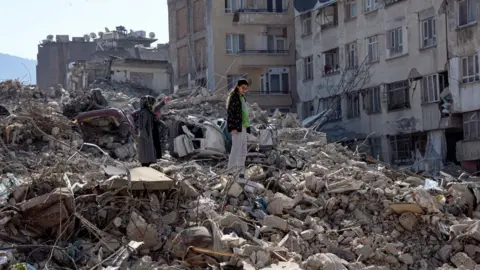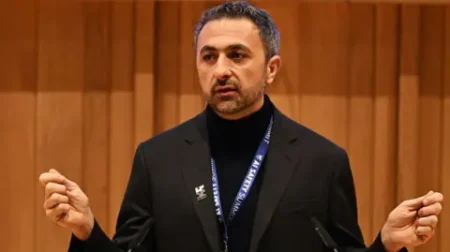In an alarming admission, Google has acknowledged that its earthquake early warning system failed to adequately alert the public during the devastating earthquake in Turkey that occurred on February 6, 2023. The incident, which registered a magnitude of 7.8, tragically led to the loss of over 55,000 lives and left more than 100,000 individuals injured. In a region where the Android operating system dominates—with over 70% of mobile phones utilizing it—this failure raises serious concerns about the effectiveness of technological safety measures in emergencies.
Google’s system was designed to provide alerts based on vibrations detected by Android devices, leveraging the technology already in the pockets of millions. Theoretically, this system could have sent out its most critical alerts, termed “Take Action,” which would have provided people with up to 35 seconds of lead time to find safety. Astonishingly, however, only 469 such alerts were dispatched to people within a 98-mile radius of the earthquake’s epicenter. Instead, approximately half a million lower-level alerts were issued, intended for minor tremors and not prominently displayed on users’ screens. This is particularly concerning given that many people were likely asleep when the quake struck at 4:17 AM local time.
The initial response from Google was that the system had “performed well”. However, as details emerged, this statement began to lose its credibility. In an assessment by Google researchers published in the Science journal, they noted the limitations in their detection algorithms. For instance, the system initially miscalculated the first earthquake’s severity, classifying it as only between 4.5 to 4.9 on the moment magnitude scale instead of the actual magnitude of 7.8. This serious underestimation directly contributed to the inadequate warning issuance, posing significant risks to those unaware of the impending disaster.
Subsequent to the earthquake, Google’s team simulated the event again using a revised algorithm. The results were staggering—in a re-assessment, the system was capable of generating 10 million “Take Action” alerts to individuals at high risk, alongside an additional 67 million alerts for those further from the epicenter. This stark contrast illustrates the potential effectiveness of the smartphone-based early warning system when properly tuned to recognize significant seismic events.
Experts have expressed frustration over the lengthy time it took for Google to release pertinent information following the earthquakes. Elizabeth Reddy, an Assistant Professor at the Colorado School of Mines, highlighted the concerns that arose from the delay. She stated, “I’m really frustrated that it took so long,” emphasizing the chilling reality that many lives were impacted by an entirely preventable failure. Many experts in the field of seismology have raised questions about whether reliance on such technology could lead countries to neglect traditional earthquake warnings.
The early warning system, known officially as Android Earthquake Alerts (AEA), works by detecting the shaking of the ground using a dense network of Android devices. Given that seismic waves propagate at a slower rate than the speed at which information can travel, the system is designed to send out alerts before the shaking reaches populated areas. However, the limitations of this system highlight the inherent challenges of earthquake prediction and the necessity for supplementary national systems to function alongside tech solutions like Google’s AEA.
Going forward, it is crucial that tech developers like Google remain transparent about the capabilities and limitations of their systems. As the aftermath of the Turkey earthquake illustrates, failure to do so can lead to devastating consequences—in this case, millions left unperturbed in their sleep while disaster loomed. Google has stated they will continue to refine the early warning system based on lessons learned from the incident, but the efficacy of these adjustments remains to be fully tested in real-time scenarios as future seismic activity inevitably occurs. Only time will tell if society can emerge from these challenges more prepared for the calamities that nature may unleash.










